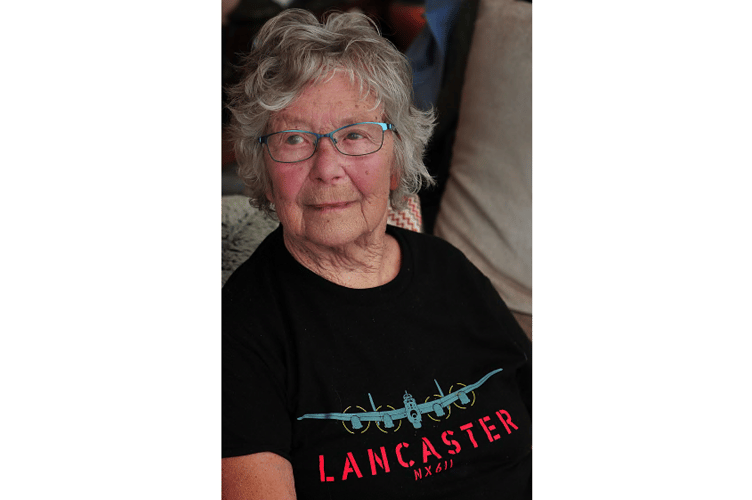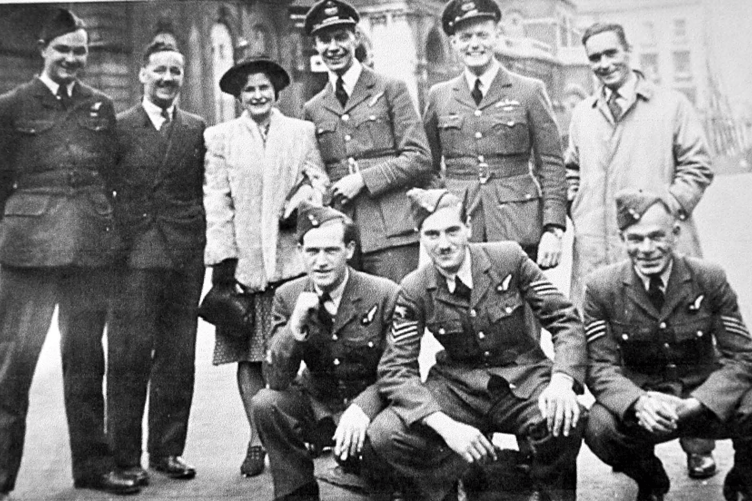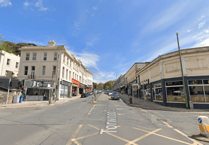THE WARTIME medals and memorabilia belonging to an RAF aircrew-man who took part in a unique morale-boosting wartime broadcast are now on display at a renowned air museum.
Harry Sparks, known as Sparky, lived at Holcombe near Dawlish, was a wireless operator with Bomber Command during the Second World War.
Sadly, Harry passed away four years ago aged 98, but his widow Vicki decided that his story should be available for all to see.
'Harry was one of a crew of seven on a Lancaster which featured in a BBC broadcast recorded on a mission to Berlin,’ said Vicki.
‘With the 80th anniversary of this important mission I decided to donate his medals and other items to the Lincolnshire Aviation Heritage Centre.’

Based at East Kirkby, a former wartime RAF base in the heart of what was known as ‘Bomber Country’, the centre is home to Avro Lancaster NX611, known as Just Jane - an aircraft type that Harry was very familiar with during his operational service. As well as his wartime medals, which included the Distinguished Flying Medal, a unique piece of artwork was also donated. Harry had put his artistic skills to good use during his wartime service and painted the back of a flying jacket depicting missions flown.
‘He was serving with 207 Squadron based at RAF Langar when he and his crew with assigned to a special duty on September 3,’ said Vicki.
‘That mission was to make an airborne recording of the raid to be be broadcast by the BBC.’
Alongside Harry and the six other crew in Lancaster ‘F-Freddie’ on that night was the broadcaster Wynford Vaughan-Thomas and BBC sound engineer Reg Pidsey. F-Freddie took off Berlin, known to crews as the Big City, at 9pm with pilot Ken Letford at the controls. Vaughan-Thomas, taking taking war reporting to a new level, recorded his thoughts on recording disks as the force made the arduous trip to the heart of Nazi Germany, crossing the Dutch coast and witnessing the horror as aircraft around them were shot down by flak (anti-aircraft fire) and night fighters.
Of the force of 316 Lancasters that took part in the raid, 22 failed to return.

Fortunately Harry’s Lancaster was lucky and made it back, along with the BBC crew, who even recorded a Luftwaffe night-fighter being shot down by F-Freddie’s gunners on the return trip.
It was broadcast the following day as a way of boosting morale to the country. The attrition rate for Bomber Command crews was harsh. Throughout the war 51% of aircrew were killed on operations, 12% were killed or wounded in non-operational accidents and 13% became prisoners of war or evaders.
Only 24% survived the war unscathed.Fortunately Harry was one of the lucky ones.
‘He was injured in both legs by a canon shell on one operation and was shot down on another but survived the war and was de-mobbed afterwards with the rank of Warrant Officer,’ continued Vicki.
‘We met at art school after the war and married in 1952. We lived in London and then Kent before moving to Holcombe He eventually ended up working for Lord King of British Airways fame as his assistant’





Comments
This article has no comments yet. Be the first to leave a comment.